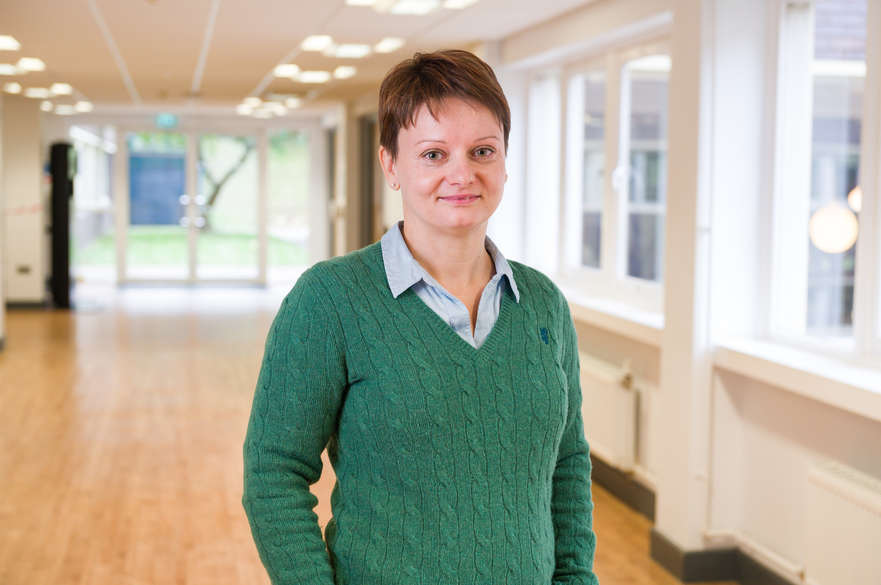Role
Eszter Simon is a Senior Lecturer in International Relations. Her main research interests are the Moscow-Washington hotline, crisis communication, risk of war measures, nuclear risk reduction, Cold-War superpower relations, trust in International Relations, theories foreign policy decision-making, populist foreign policy, and Hungarian foreign policy.
She is the module leader for the following modules:
- Understanding Foreign Policy (second-year undergraduate)
- Policy in Focus (postgraduate)
- Diplomacy, Foreign Policy, and Security (postgraduate).
She regularly contributes to the second-year Careers and Experience in Politics and International Relations module and acts as placement advisors for students on this module.
Career overview
She earned her first degree in American Studies with specializations in Political Theory and European Politics from the University of Szeged in Hungary.
She holds an MA degree in Political Science (Central European University, 2002) and a PhD in Political Science (Central European University, 2008) She previously worked for the University of Birmingham (UK), Comenius University (Slovakia), Economics University in Bratislava (Slovakia), the University of Szeged, and Masaryk University (Czech Republic).
She was a Fulbright Scholar-in-Residence at Southern Polytechnic State University (now Kennesaw State University) in 2010-2011.
She has also done substantial work on issues relating to teaching and learning Politics and is a Fellow of the Higher Education Academy since 2013. She was the NTU principal investigator for the Erasmus+ consortium grant BELONG.
Research areas
Dr Simon's main research interests are:
- international crisis communications
- foreign policy decision-making
- nuclear risk-reduction and risk of war measures
- Hungarian foreign and domestic policy
- trust and distrust in International Relations
Dr Simon is happy to supervise doctoral students in any areas of her expertise.
She currently supervises the following PhD candidates:
- Ben Seymour - Populism, Prospect Theory and Crises: Explaining Turkey’s Foreign Policy to Syria in the era of the AK Party
She has acted as an Examiner for the following projects:
- The Intersection of Counter-Terrorism, Migration and Border Control Policies in the European Union: The Securitisation of Migration? Nottingham Trent University, March 2022.
External activity
Dr Simon has acted as reviewer for the following journals:
- Foreign Policy Analysis
- Ethnopolitics
- International Journal for Academic Development
- British Journal of International Relations
- Europe-Asia Studies
She is a member of the following associations and research networks:
- British International Studies Association (BISA)
- International Studies Association (ISA)
- Trust in International Relations (TRIR) research network
Current and previous collaborators include:
- András Bozóki (Central European University)
- John Ishiyama (University of North Texas)
- Gabriela Pleschová (Comenius University)
- Agnes Simon (Comenius University)
- Mátyás Szabó (Central European University)
Publications
Dr Simons most recent publications are:
Emotion norm violations in small communities: The Carter-Brezhnev hotline correspondence, (with Agnes Simon), 2024, International Relations, online first.
China's attempts to impact EU decision making through Central Europe: The case of the EUs refusal to grant China Market Economy Status, (with Gabriela Pleschová), 2022, in G. Pleschová, China in Central Europe, pp.128-145, Edward Elgar.
Trusting through the Moscow-Washington Hotline: A Role-Theoretical Explanation of the Hotline's Contribution to Signal Interpretation and Crisis Stability, (with Agnes Simon), 2020, Journal of Global Security Studies, online first.
Two Faces of Hungary: From Democratization to Democratic Backsliding, (with András Bozóki), 2019, pp. 221-247, in: Sabrina Ramet and Christine M. Hassenstab (eds.), Central and Southeast European Politics since 1989, 2nd edition, Cambridge: Cambridge University Press.
Press expertise
- Hungarian foreign policy and domestic politics
- Face-to-face diplomacy, including summitry
- Role of trust in International Relations
- crisis communication
Dr Simon has written pieces for UK and international media outlets and has been interviewed on radio:
Moscow-Washington nuclear hotline has averted war in the past - but cool heads will be needed in Trump's White house and Putin's Kremlin. The Conversation, 14 January 2025.
The five EU countries whose imports from Russia have increased since the invasion (backgrounder). The Telegraph, February 21, 2023.
The Russian invasion of Ukraine and Hungary’s continuing dance between East and West. Nottingham Trent University Expert blog, March 2, 2022.
Only Vladimir Putin benefited from the Russia-US summit The New Statesman, July 17, 2018
The Trump-Putin summit in Hamburg and the importance of trust among leaders. ‘Good Morning Scotland,’ live commentary, BBC Radio Scotland, July 8, 2017.
Why Trump and Putin’s First Meeting Is Less Important Than We Think. Fortune.com, July 7, 2017
It’s not wrong for Donald Trump to trust Vladimir Putin. The Conversation, February 14, 2017
